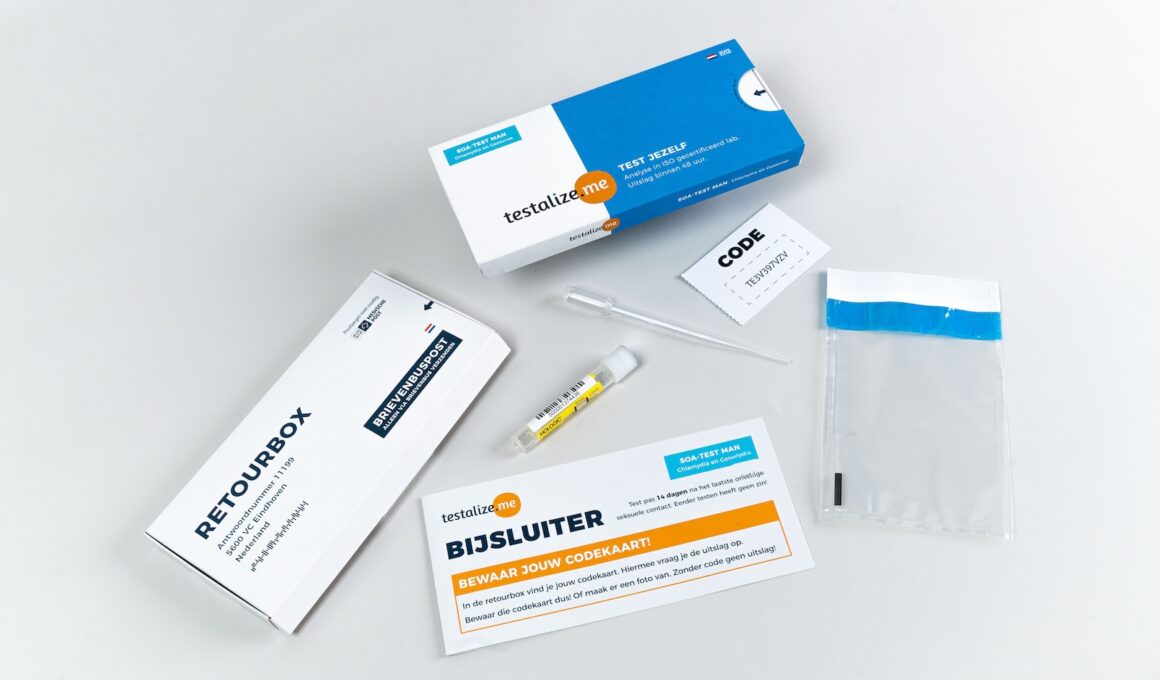Condoms have been used in some form since ancient times. They can protect you from most sexually transmitted infections (STIs), including chlamydia, gonorrhea, and trichomoniasis.
Condoms should be used every time you have oral, anal, or vaginal sex. It’s also important to get regular STI tests. You can find out if you’re at risk for chlamydia, syphilis, and HPV by using our free online STI test.
What is chlamydia?
Chlamydia (Chlamydia trachomatis) is an extremely common sexually transmitted infection (STI). It can affect women and men of all ages, but it most commonly occurs in young people who regularly change their sexual partners. It can spread when a person has unprotected vaginal, oral or anal sex and the bacteria enter the reproductive tract. Most people with chlamydia have no symptoms and don’t know they have it. Chlamydia can also be passed through breastfeeding.
Infection with chlamydia can take weeks, months or even years before any symptoms appear. Infection can be prevented by abstinence or mutual monogamy, and by using latex condoms for all types of sex and water-based lubricants for vaginal and anal sex. It can also be prevented by not sharing toothbrushes or other personal items with an infected person. It can also be prevented by getting regular screening for STIs and contacting your doctor right away if you think you have any symptoms of chlamydia.
If you have chlamydia, your healthcare provider will prescribe antibiotics to cure it. It is important to take the entire course of antibiotics because chlamydia can return if you stop taking them early. You should also get tested for chlamydia 3 months after finishing your treatment to make sure you are clear. You should not have sex until you are completely treated for chlamydia and until any symptoms such as pain in the lower belly, fever or discharge from the penis or anus are gone.
How do I get chlamydia?
Chlamydia can be spread by unprotected sex or sharing fluids like saliva, vaginal secretions and semen. It can also be passed on to a baby during pregnancy. Chlamydia cannot be spread by kissing or hugging and can only be spread through physical contact with genital tissue. It can also be spread through oral sex without a barrier. It can spread through skin-to-skin contact too, such as rubbing against a pillow, bedsheet or toilet seat.
Condoms can help prevent chlamydia and other STDs. They are most effective when used correctly and consistently. They can’t completely prevent chlamydia or any other STD, but they can significantly reduce your risk. It’s important to talk to your GP, community contraceptive service or genitourinary medicine (GUM) clinic about the best methods of protection.
Using a condom with a spermicide or lube can further increase the effectiveness of the protection. It’s also important to limit your sexual partners and practice safe sex. This includes not having oral sex, only engaging in unprotected penetrative sex, and not sharing a dildo or sex toy with anyone who has chlamydia or other STIs.
It’s recommended that sexually active women under 25 get routine chlamydia screening and treatment. Untreated chlamydia can cause serious reproductive health complications including long-term pelvic pain, infertility and ectopic pregnancy. It’s also important for all people to use a barrier method of protection like condoms with all new sexual partners and to visit your GP or GUM clinic regularly.
Can chlamydia go through a condom?
Chlamydia is spread during unprotected sexual contact, which includes vaginal and anal sex, as well as oral sex. It also can be spread to newborn babies during childbirth if the mother has it. Chlamydia doesn’t spread through toilets, swimming pools or regular contact with people. It only spreads through the sharing of genital fluids between two partners.
Condoms can help prevent chlamydia, and many other STDs. However, they aren’t 100 percent effective. Condoms can break or split during sexual activity. This can happen when the tip of the condom sticks to the sex partner’s anus or vulva or when the condom is held improperly during sex.
If the condom breaks, it exposes a person to the chlamydia bacteria and other germs. Chlamydia and other STIs are very contagious, and can lead to serious health problems.
Using condoms correctly can greatly reduce the risk of getting or spreading chlamydia and other STDs. Men and women should use a latex condom during sexual activity, or a receptive condom, which is a polyurethane pouch inserted into the anus or vulva. A spermicide can be added to the condom to further increase protection. It’s important to get tested for chlamydia and other STIs regularly. Women should get a chlamydia screening during a pelvic exam, and men should get a chlamydia screen when they get their prostate check.
Can chlamydia go through a spermicide?
Chlamydia is spread through vaginal and anal sex or oral sex. It can also be spread through pelvic inflammatory disease, which damages the fallopian tubes (which connect the ovaries to the uterus). Women with untreated chlamydia may experience infertility or pelvic pain. In men, chlamydia can cause infection of the epididymis, which carries sperm away from the testes.
Condoms, when used correctly, provide up to 98% protection against STIs and chlamydia. However, condoms don’t protect against genital herpes, which can cause sores on the anus or genital area. Genital herpes can also be spread through skin-to-skin contact with an infected person, regardless of whether a condom is used.
The best way to avoid chlamydia and other STDs is by abstaining from vaginal, anal, or oral sex. If you can’t stop having sex, using latex condoms every time is the next best thing. You can also reduce your risk by being in a long-term, mutually monogamous relationship with one uninfected partner and using condoms together.
Spermicide is a chemical that makes it difficult for sperm to penetrate the vagina. It can be found in spermicidal films, tablets, or suppositories. The suppositories and films should be inserted high into the vagina at least 30 minutes before sex. They remain effective for up to three hours, but you should insert a new film every time you have sex.





